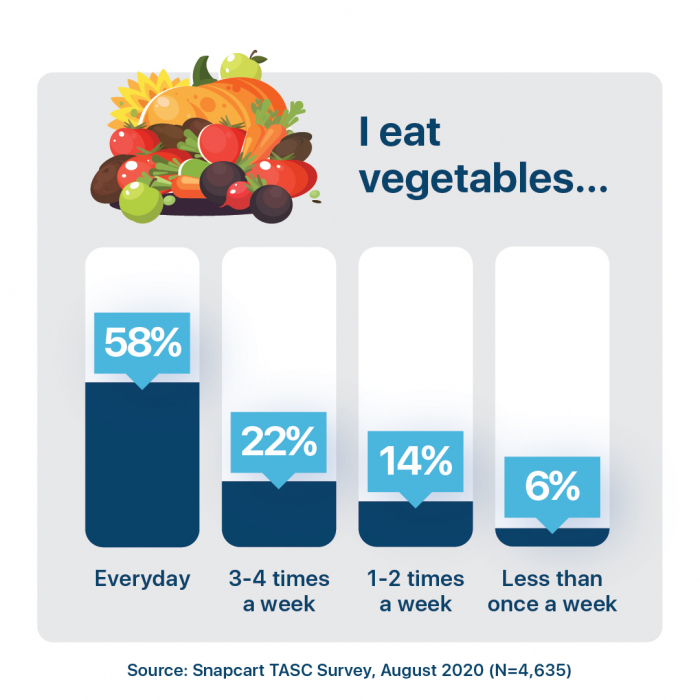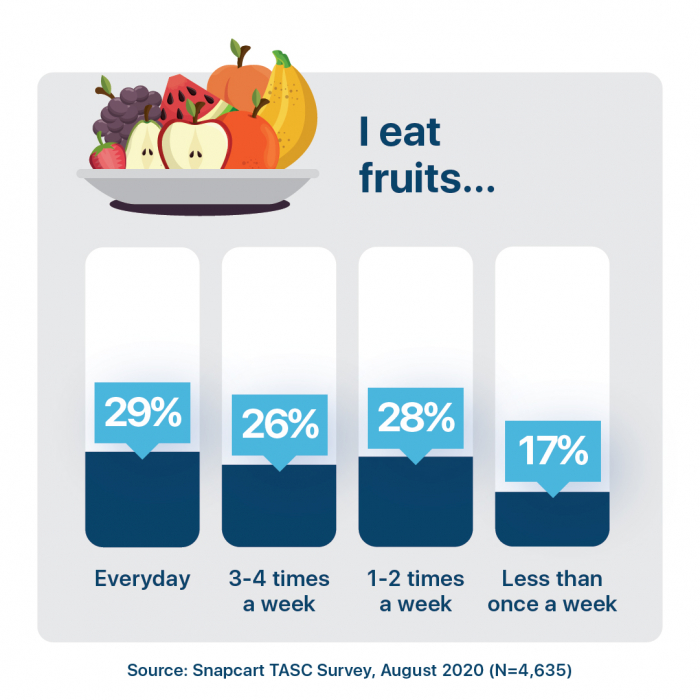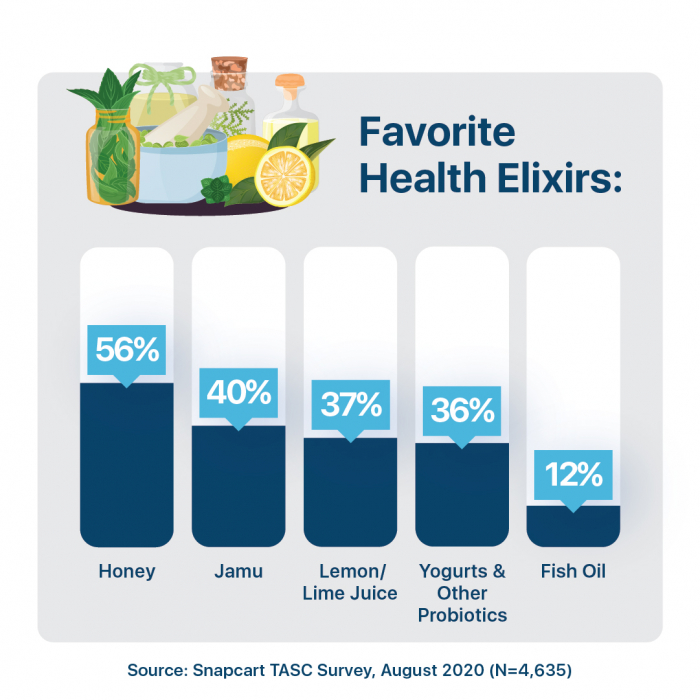For a healthy body, a balanced and nutritious diet is needed. Especially during this pandemic, to further maintain our immune system, we are even more concerned about what we eat so that we are less likely to be sick. So how does an Indonesian’s diet look like at the moment?
NO STRANGER TO VEGETABLES…

Looking at the data, 80% respondents eat vegetables at least 3 times a week. This is somewhat expected, considering even in a “warteg”, budget eateries commonly frequented by Indonesians of all backgrounds, there are numerous choices of vegetable dishes you can choose from to accompany your meal. Most households are also quite used to include vegetables in their daily meals, as vegetables are relatively cheap and easy to get in Indonesia.
But that being said, how about fruits?
…BUT NOT SO MUCH WITH FRUITS

Relative to vegetables consumption frequency, only 55% of the respondents eat fruits at least 3 times a week. And compared to only 6% of respondents who eat vegetables less than once a week, 17% respondents said that they only eat fruits less than once a week. This is concerning, as even in 2016, most Indonesian’s daily average intake of fruits are only 67 grams, much less than FAO (Food and Agriculture Organization of the United Nation)’s recommended rate of 400 grams [1].
So aside from fruits and vegetables, what is it that Indonesians usually consume to further boost their health levels?
ELIXIRS OF HEALTH AND WELLNESS

There have been a lot of trends regarding health food and drinks coming and going, but apparently Indonesians still like to stick with the traditional ones. Around 40% of Indonesians still consume “jamu”, traditional health concoctions made from various natural materials, to keep themselves healthy.
How about you? Have you been keeping yourself healthy? Don’t forget to keep a balanced diet and accompany them with exercise, so that we all can stay healthy during this pandemic.
These insights are made possible by Snapcart’s TASC, which gives quick results from audiences across Indonesia. Want to know how you can get insights of your own? Find out here.
References:
[1] Greater consumption of fruits and vegetables promoted by UN agencies, 2003, http://www.fao.org/english/newsroom/news/2003/24439-en.html





